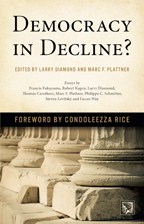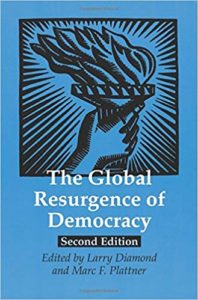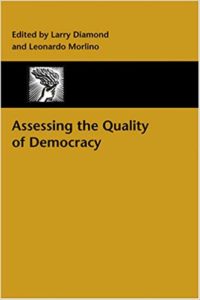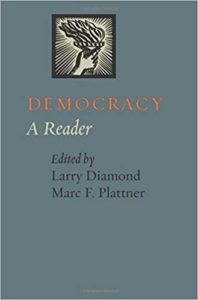January 2015, Volume 26, Issue 1
Crisis and Transition, But Not Decline
Rather than being in decline, democracy is in crisis due to the gap between the democratic ideal and how democracy is actually being practiced. It will survive by transitioning into a new, as yet unknown, form.






